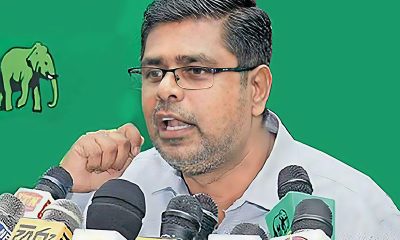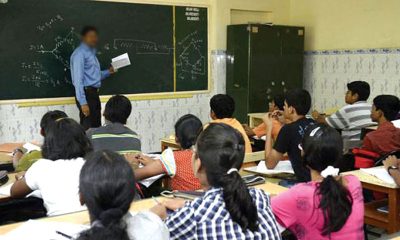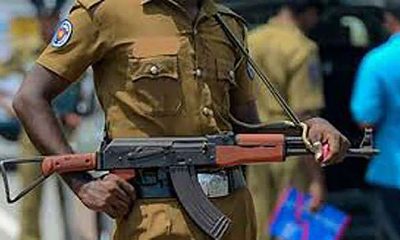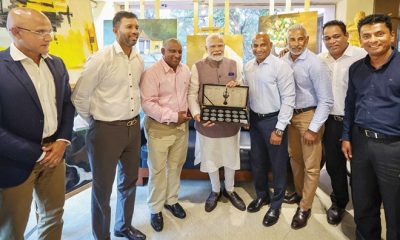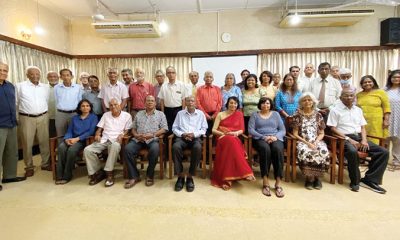News
GTF extends cooperation to newcomers, reiterates commitment to partnership with TNA

By Shamindra Ferdinando
The UK based Global Tamil Forum (GTF) is ready to extend cooperation to Ahila Illankai Tamil Congress (AITC) and Tamil Makkal Thesiya Kuttani (TMTK) led by Gajendrakumar Ponnambalam and C.V. Wigneswaran, respectively.
AITC won two seats, including one National List whereas the TMTK secured one.
GTF spokesperson Suren Surendiran told The Island that the grouping would continue to work with the Tamil National Alliance (TNA) as in the past but would very much like to extend cooperation to the new parties as well.
Both AITC and TMTK hadn’t been represented in parliament before though Gajendrakumar Ponnambalam and Selvarasa Gajenthiran elected and appointed on the AITC National List, respectively, represented the TNA in parliament twice in 2001 and 2004.
Retired Supreme Court justice Wigneswaran, who served as the first Chief Minister of the Northern Province in the TNA run administration, hadn’t been a parliamentarian before.
The GTF officially formed after the end of the war in May 2009, has been working closely with the TNA. Surendiran said that among the issues they worked closely on was the accountability issue leading to the previous Sri Lanka government co-sponsoring a controversial resolution in Oct 2015 at the UNHRC.
Surendiran appreciated Wigneswaran and Gajendrakumar taking a strong stand in respect of 13th Amendment as well as the accountability issue in parliament during debate on President Gotabaya Rajapaksa’s policy statement.
Asked whether there was any likelihood of GTF reaching consensus with the AITC and the TMTK, in addition to the existing GTF-TNA cooperation?
Surendiran said: “GTF is a diaspora based organization consisting of member organizations and members who live overseas. One of our mission statements is to collaborate and work with elected representatives of our people in Sri Lanka, to progress the Tamil cause, be it seeking justice for the wrongs of the past, economic development or finding a political solution for the Tamils’ grievances and aspirations. As GTF, we have met Gajendrakumar Ponnambalam and others from his party many times in the past and we will be ready to work with both him and Wigneswaran in the future, just as we will continue to work with TNA.
Pointing out Gajendrakumar Ponnambalam challenged President Gotabaya Rajapaksa’s mandates (received at the 2019 presidential and 2020 parliamentary polls) in respect of the North-East and a number of other issues, including war crimes, The Island sought the GTF’s stand on AITC tough position vis-a-vis the President’s policy statement.
Surendiran said: “As you have described, indeed, it really was a powerful speech! I think he made a few factual statements, very eloquently. The point about, the people of North and East unanimously voting on points of principle, be it for different parties and candidates, the fact that sovereignty cannot be a defence to avoid investigating and delivering justice to victims of heinous crimes and that it was the State in fact which should have protected these people who were alleged to have committed these breaches of international laws against them, were made very effectively.”
In addition to newcomers, AITC and TMTK, the SLFP won a seat in the Jaffna peninsula. Angajan Ramanathan yesterday told The Island that he was the first Tamil to successfully contest Jaffna on the SLFP ticket ever. Responding to a query, Ramanathan said that he gained entry into Northern Provincial Council in 2013 on the SLFP ticket. Ramanathan was accommodated on the UPFA National List in the previous parliament. The UNP failed to retain its Jaffna seat at the Aug 5 poll.
Ramanathan said that Vijayakala Maheswaran represented the UNP in Jaffna following the assassination of her husband.
Eelam People’s Democratic Party (EPDP) won two. In the previous parliament, Douglas Devananda’s EPDP had only secured one seat at present.
Batticaloa-based Tamil Makkal Viduthalai Pulikal (TMVP) won one seat (Sivanesathurai Chandrakanthan alias Pilleyan) whereas the TNA secured ten seats, the highest number obtained by any Tamil political party though in the previous parliament the coalition was represented by 16. The TNA’s ten included one National List slot. In the previous parliament, the TNA had two National List slots.
At the height of its political power, the TNA parliamentary group comprised 22 lawmakers.
Surendiran said that the Tamil community expected their representatives at all levels to take up issues whatever the party they represented in parliament. Surendiran noted that the AITC leader emphasized the pivotal importance of those elected working together regardless of being elected or appointed from different political parties.
News
Batalanda: Why only now and what about the others, asks Mujibur
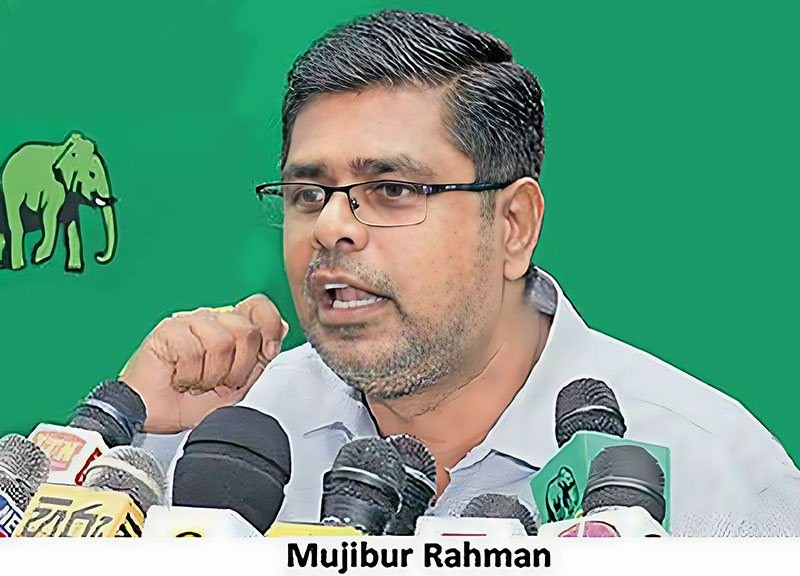
SJB Colombo District MP Mujibur Rahuman launched a fierce critique of the political hypocrisy surrounding the Batalanda Commission report during Thursday’s (10) parliamentary session.
Rahuman pointed to the violent actions of the JVP, which had devastating effects on politicians, police officers, and civilians, as detailed in the Commission’s final report.
He said that the violence had disrupted vital services and created a state of lawlessness, severely affecting the public.
The MP accused political opponents of exploiting the Batalanda issue for electoral advantage, noting that for 36 years, no proposals were made to investigate the assassination of JVP leader Rohana Wijeweera.
He criticized the JVP for forming “probationary” governments with Chandrika Kumaratunga and backing Ranil Wickremesinghe in the yahapalana effort, yet failing to address the Batalanda issue during their tenures.
Rahuman also questioned the current attacks on Wickremesinghe, highlighting that many of his critics had previously collaborated with him. He called attention to the JVP’s statements regarding Gotabaya Rajapaksa’s alleged involvement in a Matale mass grave and the distribution of pamphlets on the subject during the 2022 Galle Face protests.
The MP called for accountability, questioning why no proposals were put forward on these issues when the current government came into power. He also criticized the NPP for its leaders, who, despite being involved in suppressions during the 80s and 90s, now sought positions within the government. Rahuman accused them of hypocrisy, warning against dragging the Batalanda issue into the ongoing election.Rahuman said that the historical wrongs committed by JVP political leaders cannot be erased, regardless of attempts to downplay them.
News
Rs. 200 Bn tutoring industry contributing to teacher shortage crisis
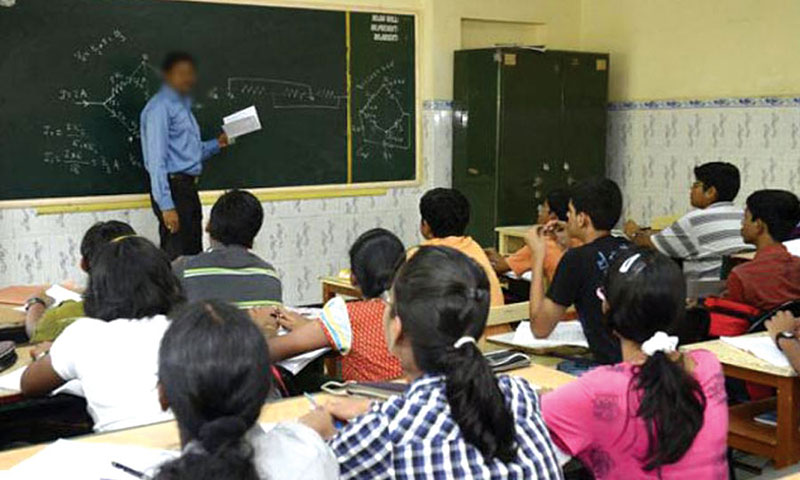
The country’s education system is facing a severe crisis, marked by a growing shortage of teachers for the G.C.E. Advanced Level (A/L) classes, particularly in urban national schools, says the Ceylon Teachers’ Union (CTU), which highlights the government’s failure to take meaningful action despite acknowledging a deficit of approximately 30,000 teachers.
CTU Secretary Joseph Stalin told the media on Thursday that national schools, particularly in urban areas such as Colombo, are severely affected. “Existing teachers are overwhelmed with excessive workloads, and there is a critical need for qualified educators, especially English-medium graduates in subjects like science, mathematics, and IT,” Stalin said, describing the situation as a “serious crisis.” He warned that the teacher shortage is undermining the quality of education for thousands of students preparing for university entrance.
Prime Minister Harini Amarasuriya, in a speech to Parliament earlier this year, confirmed that over 40,000 teaching vacancies exist across the country, with 2,652 of these in national schools. Despite efforts to fill these vacancies, bureaucratic hurdles and legal challenges have delayed progress, leaving both students and educators in a precarious position. Former Education Minister Susil Premajayantha’s attempts to resolve the crisis last year were unsuccessful, according to industry sources.
As the teacher shortage deepens, many students and parents have turned to the private tuition sector to compensate for the gaps in the formal education system. Professor Wasantha Athukorala, Director of the Postgraduate Institute of Humanities and Social Sciences at the University of Peradeniya, revealed that the tutoring industry has ballooned into a Rs. 210 billion sector. “Over Rs. 200 billion is circulating in the tutoring sector, with an increasing reliance on private tuition to fill the void left by the shortage of teachers in schools,” Prof. Athukorala said.
Industry sources report that private tutoring has become a lucrative business, particularly for A/L students, with estimates indicating that tutors collectively earn Rs. 210 billion annually. This figure excludes income from smaller private classes, which are increasingly held in urban areas. The booming tutoring industry is a stark reflection of the failure of the formal education system to meet students’ needs. Of the total revenue, Rs. 80 billion is generated from A/L students, underscoring the growing dependence on private tuition rather than state-run education.
Prof. Athukorala also raised concerns about the detrimental effects of late-night tuition sessions, which have become increasingly common. Classes that run well into the night, sometimes until midnight, place additional stress on students who are already burdened by their academic workloads. Moreover, the informal tutoring sector remains largely unregulated, with minimal oversight and no taxation framework in place.
The Ministry of Education has reported a significant shortage of teachers in key subjects, including English, Science, and Mathematics, with nearly 30,000 vacancies nationwide. However, efforts to fill these gaps have been largely ineffective, leaving schools struggling to cope. Teacher unions have raised alarms over the declining attendance rates in schools, particularly in A/L and O/L classes, as more families opt for private tuition to ensure their children’s academic success.
News
Special police security and traffic arrangements of New Year
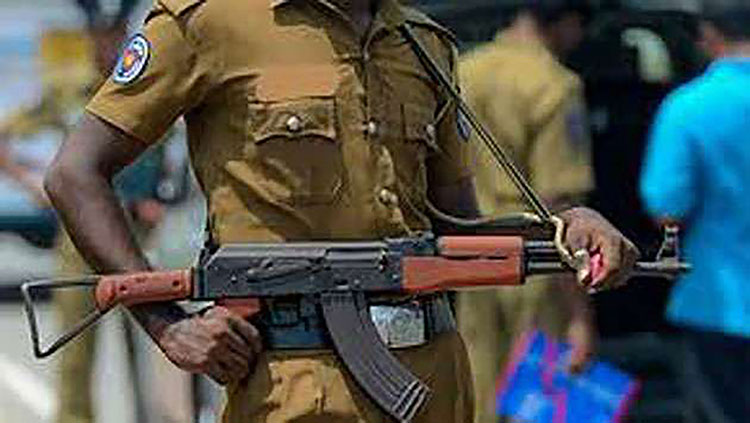
The Police have announced the implementation of special security and traffic arrangements across the country in view of the Sinhala and Tamil New Year celebrations, expected to draw large crowds to various festive events, shopping areas, and places of worship.
These measures are aimed at ensuring public safety and managing traffic congestion during the busy holiday period, especially in urban centres, police sid.
In the Colombo city limits alone, over 6,000 police officers have been deployed to provide security and regulate traffic in high-traffic zones such as Fort, Galle Face, Borella, Kirulapone, Bambalapitiya, and key religious sites.
A dedicated traffic plan has also been introduced in Colombo to help ease congestion as thousands of people are expected to flock to the city for New Year shopping and entertainment events, including exhibitions and concerts.
Nationwide, more than 35,000 police personnel have been mobilized to maintain public order and manage traffic flows during the festive season.
Police appealed to the public to cooperate with officers on duty and extend their support, particularly to traffic police, in order to ensure a safe and smooth festive experience for all.
By Norman Palihawadane
-

 Business6 days ago
Business6 days agoColombo Coffee wins coveted management awards
-

 Features2 days ago
Features2 days agoRobbers and Wreckers
-

 News1 day ago
News1 day agoSuspect injured in police shooting hospitalised
-

 Features4 days ago
Features4 days agoSri Lanka’s Foreign Policy amid Geopolitical Transformations: 1990-2024 – Part III
-

 Midweek Review4 days ago
Midweek Review4 days agoInequality is killing the Middle Class
-

 Features6 days ago
Features6 days agoSri Lanka’s Foreign Policy amid Geopolitical Transformations: 1990-2024 – Part I
-
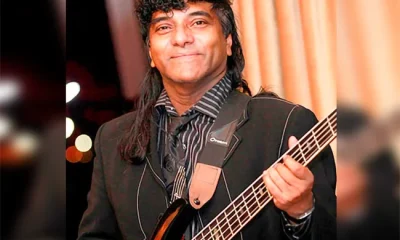
 Features5 days ago
Features5 days agoA brighter future …
-

 Business3 days ago
Business3 days agoNational Anti-Corruption Action Plan launched with focus on economic recovery


